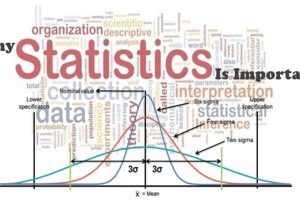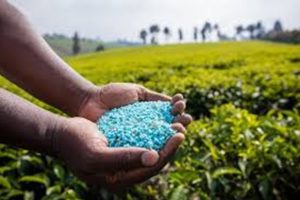
BY HIZKEL HAILU
Ethiopia, where most of its people directly or indirectly depend on the agricultural sector has been taking different mechanisms to increase agricultural productivity. A series of agricultural development activities that are either supported by the government or international organizations have been implemented in the country.
The Comprehensive Agricultural Package Program; Extension Program Implementation Department (EPID); the latest Ethiopian Development Plan Framework; Agricultural Development Industry Policy Led Industrialization (ADLI); the Sustainable Development and Poverty Reduction Program as well as the First and Second Growth and Transformation Plans (GTP I and GTP 2) amongst others are the programs undergone by the government to improve agricultural production and productivity.
These agricultural sector improvement programs have indeed played a pivotal role in boosting the country’s economy and improving the lives of the people, especially of the farmers. As a result, agricultural production has increased annually and it was able to create many investors. However, these measures solely could not provide a reliable solution to the country’s food security, job creation, economic growth, or problems in the agricultural sector.
Consequently, one of the steps further taken by the government was to establish an institution to identify the problems of the agricultural sector and make recommendations accordingly. The Ethiopian Agricultural Transformation Agency (ATA), which was recently transformed into an institute, was part of this solution. Ethiopia’s agriculture is fraught with many problems and the results of agriculture are not commensurate with the country’s capacity and demand. The Ethiopian Agricultural Transformation Agency which was established as a consultative institution was needed to address these issues.
The Agency was established in December, 2010 to identify and recommend problems in the agricultural sector, especially performance constraints. The Institute, which coordinates agricultural stakeholders to identify gaps and make recommendations between policies and research, has recently been transformed into an Ethiopian Agricultural Transformation Institute (ATI).
The Minister of Agriculture, Omar Hussein, said the agency (now called the Institute) has made a significant contribution to identifying gaps in the agricultural sector and increasing productivity in recent years. The Minister further illustrated that the capacity to cover up to four million hectares of land has been achieved by the strong work of the Institute. The cluster farming, which has involved many farmers, has brought a significant difference to increase product and productivity of agricultural sector, he noted. He also said that the institute has taken steps to identify and address problems in policies and procedures.
According to Mandefro Nigussie (PhD), Director General of the Ethiopian Agricultural Transformation Institute, the institute has been working in identifying problems in the agricultural system; providing implementation support; implementing projects that are important to the sector and coordinating actors in the value chain. The institute will identify the problems of the sector and make recommendations. And if the recommendations cannot be implemented by stakeholders, implementation support will be provided by the institute, he noted.
“In this process, stakeholders will be given more capacity to implement the recommendations. For example, experts from the Ministry of Agriculture, the Investment Commission, the Cooperative Commission and other institutions conducting research, marketing and investment feasibility studies and carrying out capacity building activities are the manifestation of this activity. According to the Director General, these activities are indications that the institute will build the capacity of the executive bodies,” he remarked.
While mentioning mobilizing actors in the value chain is another mission of the institute, he explained that one of the activities of the institute is to link foreign direct investment with farmers. Examples of these inclusions are linking barley farmers to malt factories and oil seeds producer farmers to oil producer factories, he added.
As to him, the Agricultural Comme rcialization Clusters (Cluster Farming) is amongst the institute’s best performance in the agricultural transformation activities. Explaining how the institute has implemented this farming method, Mandefro said that transformation means releasing the farming from hand-to-mouth system and enabling agricultural products to provide to the market. After an area is set only for cluster farming, training is provided, then it is cultivated without borders and the farmers become beneficiary.
“Tractors, airplanes, combiners and other modernized machineries will also be functional for plowing, spraying herbicides and pesticides and harvesting activities. As a result, the farmers will get rid of hand-to-mouth farming and transform to entrepreneur level and move beyond the domestic market to export. This cluster farming system, which started with 10 crops (wheat, teff, maize, barley, sesame, avocado, banana, mango, tomato and onion), has so far been implemented in 300 woredas,” he said.
On his official tweeter account, Prime Minister Abiy Ahmed (PhD) stated that Ethiopia’s cluster farming approach is testament to what the country can achieve in unity for food security and national development. In his tweet, the PM appreciated the efforts being undertaken to enhance wheat productivity in Amhara regional state.
“I appreciate the great efforts in the Amhara region to enhance wheat productivity. With more than 41,000 hectares developed throughout the region and more than 2,800 hectares in North Shewa Zone, productivity is encouraging. Our cluster farming approach is testament to what we can achieve in unity for food security and national development,” the Premier noted.
Speaking with Ethiopian Press Agency (EPA), Deputy Director General of the Institute Yifru Tafesse (PhD) said the agency’s activities include soil fertility and agricultural mechanization apart from the aforementioned activities. Noting that lack of soil fertility is one of the problems in the agricultural sector, and he mentioned that the institute has conducted a research through taking 80,000 soil samples which were collected from 800 woredas. As a result, it was able to increase the productivity of the areas.
He Furthermore stated that the mechanism used to support agriculture through mechanization had many problems. For instance, inputs imported to facilitate agricultural mechanization were not tax exempted. Now however, through the recommendation provided by the institute to the government, it has released the tax while importing agricultural inputs. This has made things possible to provide inputs for farmers at lower prices than when they were taxed. Mechanization Service Centers have been set up to support this task, he pointed out.
The Institute was established to build the capacity of the institutions in the agricultural sector and to help them implement improved practices, said Yifru adding that if one step in this chain is a problem, it will ruin the overall outcome of the plan so it is important to do the activity in coordination. Thus, the institute has close ties with ministry of Agriculture, farmers and other stakeholders. As to him, the cluster farming struggle has expanded and has reached a better level this day.
Yifru further explained that the institute has strong cooperation with the agricultural sector. According to him, the cooperation with the Ministry of Agriculture is more coordinated than ever. He also illustrated that they have worked together on the government’s ten-year development plan through identifying solutions to the critical issues that can change the agricultural sector. Modernizing agriculture, expanding irrigation, linking agriculture to the manufacturing sector and increasing agricultural investment are key issues that need to be addressed, he added.
After the Agency transformed into an institute, it was given additional responsibilities to conduct research. According to Mandefro, the next activities of the institute will be conducting systematic researches on other assets than restricted only on crop production. In addition to crops, it will focus on livestock and animal products, especially chicken and milk, he accentuated.
He also pointed out that there are many countries and institutions that support the success of the institute and that his office will continue its efforts to increase the productivity of the farmers and make them big producers and beneficiary as well. Noting that they will identify the challenges and solutions that will prevent the agricultural transition from succeeding, he underlined that they will implement the findings of the study.
After all, farmers who have adopted the cluster farming system have benefited from technology that can solve productivity problems. Therefore, understanding the need of modernizing agriculture for the national economy, farmers, private sectors, investors and all stakeholders should work in unison with the government, the officials recommended.
THE ETHIOPIAN HERALD THURSDAY 7 JULY 2022





